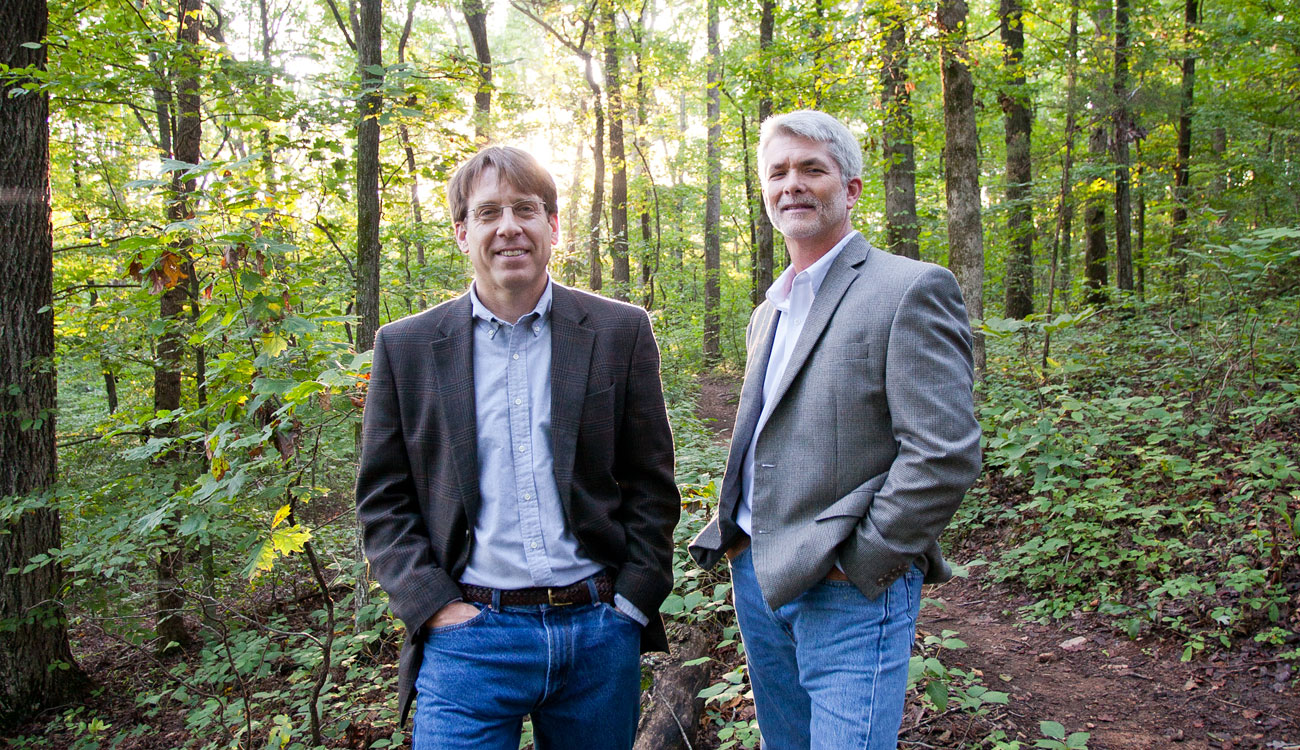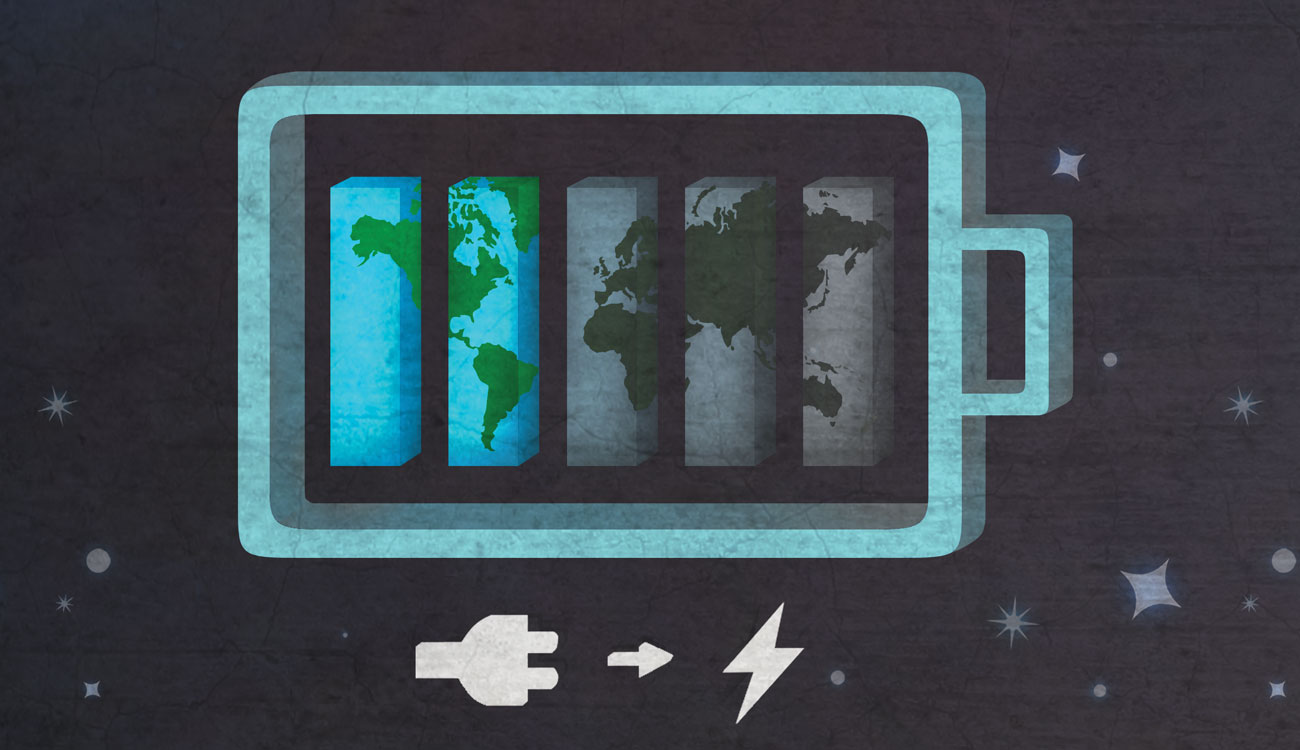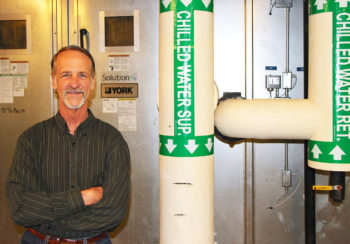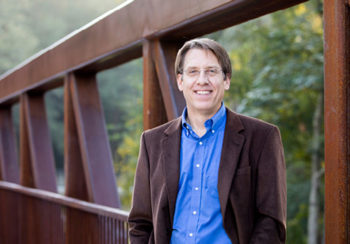
By the numbers
Schramski and his colleague David Gattie, an associate professor of engineering at UGA, joined with James H. Brown, an ecologist and Distinguished Professor of Biology at the University of New Mexico, to model how the planet’s organic energy stores are disappearing and what that means for the future of humankind.
Studies in the scientific literature estimate that 2,000 years ago Earth contained approximately 1,000 billion tons of carbon in living biomass. Since that time, humans have reduced this total
by almost half. Perhaps more disconcerting is the fact that just over 10 percent of that reduction occurred in the last century alone, and the pace is accelerating.
Today, humans are depleting the remaining 550 billion tons of carbon in living biomass at a net rate of about 1.5 billion tons per year. As more biomass is destroyed, Earth has less stored energy for maintaining complex food webs and biogeochemical balances.
To better illustrate the correlation between human activities and biomass degradation, the researchers created a new sustainability metric they call “omega,” which combines two critical variables affecting the energy status of the planet: the total amount of global living biomass and the human population.
Omega is the amount of energy contained in the world’s living biomass divided by the yearly energy required to feed the global human population. The resulting figure gives the number of years at current rates of consumption that global biomass storage could feed the human race.
“The omega equation is not actually designed to predict how much food we’ve got left; it’s simply a way of demonstrating the correlation between human population growth, energy consumption and biomass destruction,” Schramski said. “Omega gives us a framework built on real numbers that we can use to understand the increasing human impact on biomass.”
And that impact has been dramatic. In just 2,000 years, our single species has reduced omega from 67,000 years to 1,000 years, or by more than 98 percent, according to the paper. But Schramski warns that we shouldn’t take comfort in what sounds like plenty of remaining time. For starters, it is an extraordinarily conservative estimate. The calculation assumes, for example, that all biomass could be harvested to feed humans—that all of it is edible—and that’s clearly not the case, he said.
“The important thing to note here is that omega is declining predictably and rapidly,” Schramski said. “This metric is more about the trend, not a specific value, and the conservative assumptions used in the calculation of omega and its rapid decline underscore how little time is left. We are already solidly within the zone of scientific uncertainty where some perturbation in our environment could trigger a catastrophic shift.”
This downward trend has dire implications for the planet’s energy balances, the researchers said. Earth’s battery was charged very slowly over billions of years by the sun, and most of that energy now resides chemically in plants. Their concern is that as we
destroy plants, we release that energy, moving the planet ever closer to a thermodynamic state known as “equilibrium.”
In common parlance, equilibrium is generally a positive thing; it suggests stability, calmness or the absence of conflict. But in the context of planetary thermodynamics, equilibrium has a decidedly more negative connotation.
“Earth is out of equilibrium compared to the very cold void of space, because Earth contains a lot of stored chemical energy in the form of living biomass,” Schramski said.
“But as we deplete those energy stores, the planet becomes more and more like outer space. We are gradually shifting our energy state back to equilibrium.”
One way to illustrate this idea is to think of a fireplace. As you burn logs, the chemical energy stored in the wood is released as heat and light. The ashes that remain after the fire goes out contain far less energy than the original wood, so the only way to keep the fire going is to add more wood.
Just like the woodpile that fuels a fireplace, the energy reserves on Earth are finite.
The road ahead
What does the future hold for planet Earth and its people? The picture is murky, but unless we find a way to quickly stabilize the stores of chemical energy in Earth’s biomass, humankind is absolutely unsustainable,
according to the paper.
Left unperturbed, vegetation will regrow, but restoring decimated landscapes takes time. Some of the forests in the United States, for example, have recovered from the destruction wrought by early westward expansion, but that’s only a sliver of the total picture. “You have to think about this on a global scale,” Schramski said. “Yes, biomass is returning in some places, but the destruction of plant life in other areas more than offsets these smaller gains.”
It’s difficult to say how much time we have to act, said Schramski, because scientists don’t know precisely how much biomass is necessary to support all of Earth’s ecosystems. But although we don’t know exactly where the tipping point is, we do know that we’ll reach it unless something changes.
If the stores of biomass do drop below sustainable thresholds, life on the planet will inevitably become less hospitable as more people depend on fewer available energy options, Schramski said. And it is not unreasonable to assume that humanity’s collective standard of living will become more vulnerable to fluctuations such as droughts, disease epidemics and social unrest. At the limit, given present trends, “right now the unsustainability of our future is, from a thermodynamic standpoint, 100 percent certain,” he said.
“It feels strange to make these kinds of predictions,” he said. “Despite what some people may think, I’m not an ardent environmentalist; my training and my scientific work are rooted in thermodynamics. But these laws are absolute and incontrovertible; we have a limited amount of biomass energy available on the planet, and once it’s exhausted, there is absolutely nothing to replace it.”
Still, such outcomes are in the realm of worst-case scenarios. Schramski and his collaborators are hopeful that recognition of the importance of biomass and prevention of its destruction will slow the steady march toward a bleak future.
“I like to think of myself as a realistic optimist; I won’t hide from the truth, but I’m hopeful that what we’ve found through our research will help inspire change,” Schramski said.
But the measures required to stop the progression toward unsustainability will have to be drastic.
“We will need to be very innovative as we move forward,” said Gattie. “Unfortunately, there is no magic bullet.”






